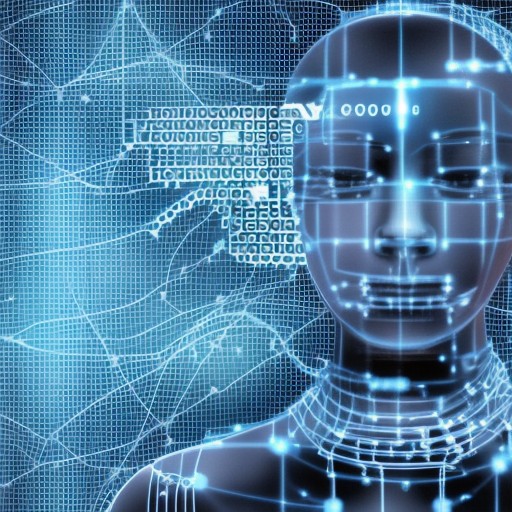Course Related Blog Posts
“Blogging is a communications mechanism handed to us by the long tail of the Internet.”
-- Tom Foremski
Course-Related Blog Posts
These are several of blog posts that relate to Understanding Emerging Trends in Business Technologies.
Table of Contents.
- Understand Emerging Trends In Business Technologies
- How AI is Helping Business School Students Write Better
- AI for Coding: The Future of the Industry
- The Importance of an Online Community for Business Students
- The Future of AI & ML with the Advent of GPT-4
- The Future: Machine Learning Applications
- What is Quantum Computing and What Does It Mean for the Future?
- How AI Could Empower Any Business
Understand Emerging Trends In Business Technologies
We are at the beginning of a new, exciting era with the introduction of various business technologies, especially with the advances in artificial intelligence (AI). It is interesting to note that 63% of individuals recently surveyed did not realize they were already using AI technologies. So, AI and its perceived benefits are not new ideas; rather, AI technology has only recently emerged and is becoming widespread and integrated into many user applications. Additionally, for organizations to succeed in this new era of applied business technologies, they will require a workforce that is well-prepared, well-educated, and well-informed.
https://so.ilitchbusiness.wayne.edu/blog/understand-emerging-trends-in-business-technologies
AI for Coding: The Future of the Industry
Artificial Intelligence (AI) has been a hot topic in the technology industry for years now, with many businesses looking to adopt AI into their workflows. AI can be used for a variety of tasks, including automating repetitive processes and providing insights based on data analysis. However, one area that has received less attention is the use of AI for coding.
https://so.ilitchbusiness.wayne.edu/blog/ai-for-coding-the-future-of-the-industry
How AI is Helping Business School Students Write Better
Business schools are turning to artificial intelligence and machine learning algorithms to help improve the quality and efficiency of their students' writing assignments. These machine-learning models can suggest better word choices, offer grammar and spelling corrections, provide automated editing suggestions, and much more.
https://so.ilitchbusiness.wayne.edu/blog/how-ai-is-helping-business-school-students-write-better
The Importance of an Online Community for Business Students
In today's business world, online communities are more important than ever. A well-run online community can provide invaluable feedback and insights, help to build brand loyalty, and generate buzz around a company or product. Many industry giants, such as Lego, Dell, and Adobe, have all launched successful virtual communities. As a business student, shouldn't you have a place to learn and grow with your community?
https://so.ilitchbusiness.wayne.edu/blog/the-importance-of-an-online-community-for-business-students
The Future of AI & ML with the Advent of GPT-4
The emerging technology of GPT-4 has the potential to revolutionize the field of AI and ML development. GPT-4 will be the fourth generation of an AI technology called GPT, or "generative pre-trained transformer." GPT is a neural network machine learning (ML) model trained using internet data that is designed to generate human-like text. GPT-4 is believed to be similar to GPT-3, but it will be more accurate and can handle more complex tasks. GPT-4 has potential implications for businesses, especially those that rely on natural language processing (NLP) and text generation. For example, GPT-4 could be used to improve chatbots, automated customer service systems, and content generation tools. Overall, the currently available information about GPT-4 highlights that it appears to be a powerful tool that has the potential to revolutionize how businesses use NLP and text generation. However, as with any new technology, some risks need to be considered. Businesses should closely monitor the development of GPT-4 and consider how it could be used to benefit their operations.
The Future: Machine Learning Applications
Chances are, you've heard of artificial intelligence (AI) and machine learning (ML). But what exactly are they? In short, artificial intelligence is a broad umbrella term that refers to any computer system that can perform complex tasks that normally require human intelligence, such as visual perception, natural language processing, and decision-making. ML is a subset of AI that deals with the construction of machine learning models and the study of machine learning algorithms that can learn from and make predictions on data. In other words, machine learning is a computer's ability to automatically improve its performance on a task by learning from experience. So, machine learning is a type of artificial intelligence that allows computers to learn from data without being explicitly programmed. This makes it a powerful tool for a variety of industries and in a variety of business operations or workflows.
https://so.ilitchbusiness.wayne.edu/blog/the-future-machine-learning-applications
What is Quantum Computing & What Does It Mean for the Future?
Quantum computing is an emerging technology that has the potential to change the world as we know it. Many businesses are already taking advantage of quantum computing to improve their operations. But what is quantum computing, and what does it mean for businesses? In this blog post, we will discuss quantum computing in greater detail and explore some of the business use cases that are already being developed. We will also answer the question: why should you learn about quantum computing today?
How AI Could Empower Any Business
Artificial Intelligence (AI) is a hot topic in the news. As our technology advances, so does our ability to create machines that can "think" and learn for themselves. This raises the question: If we can create machines that can do our jobs for us, what will humans be required to do? A few hundred years ago, many people in society thought that maybe not everyone needed to be able to read and write. This was because there were not enough jobs that required those skills. Today, most jobs require reading, writing, and oral communication skills, yet many of the current jobs could be done by machines. For example, cashiers, retail workers, and data entry clerks are all jobs that could potentially be done by Artificial Intelligence. So, the question remains: If Artificial Intelligence can enhance our jobs and improve our productivity, what will we require workers to do? Only time will tell.








